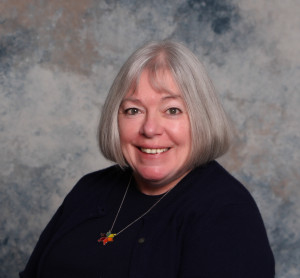My Montrose: Dr. Ann Robison, The Montrose Center

You’ve served as executive director of the Montrose Center since 1988. What was it like back then, and how has it changed over the years?
When I came we had 13 employees and a $385,000 budget. I remember struggling to find health care for
the employees, because we had a few staff members with HIV, and that boosted the cost of insurance. It was harder to raise money, because it wasn’t as cool to be gay as it is now. The center really took off with the rise of HIV funding, unfortunately.
Right—1988 was at the height of the HIV/AIDS epidemic.
We had almost gone broke trying to serve everybody, and then the Ryan White CARE Act was passed [in 1990] and we became the only behavioral health provider funded by Ryan White. Today we have a $6 million budget and 87 employees. It’s not all for HIV—we’ve developed an anti-violence program where we deal with domestic violence, hate crimes, and human trafficking. We house the HATCH program [for gay and transgender adolescents], a senior program, and have developed HIV outreach programs where we go into the Harris County Jail to meet with prisoners who are about to be released and help them transition into the community.
Everybody understands the importance of medical care for people with HIV/AIDS, but why is behavioral counseling so important?
As we got farther and farther into the HIV epidemic, there were more and more people who were contracting it because of substance abuse. And not just injection drug use—sometimes people get high at a party and don’t practice safe sex. So counseling is important for prevention efforts. And the medications people have to take when they’re HIV-positive can have side effects when mixed with alcohol or street drugs. There are also some long-term side effects from the drugs. We have some clients who have been positive for 25 years or longer, and some of the side effects can cause depression. And there’s a lot of survivor’s guilt for people who are older and survived while so many of their friends died. There are a lot of special issues that someone who isn’t in that community might not be able to handle.
How important is the Houston Equal Rights Ordinance, and what is the center doing to support its passage this fall?
We’re helping with voter registration drives, and a lot of our staff and clients are volunteering for the phone banks and block-walking. There’s all this euphoria about marriage equality, but it’s still legal to fire people in Texas for their sexuality. The president issued an executive order prohibiting that, but it only applies to government workers and government contractors, of which we are one. So we can’t discriminate against someone who’s heterosexual. But a private business can discriminate against an employee who’s gay or transgender.
The center changed its name from the Montrose Counseling Center to simply the Montrose Center in 2013—why was that?
We had branched out into doing so many things that supported the counseling, but also things that just supported the community and weren’t necessarily related to behavioral health. And we wanted to make people feel good about coming here and not feel like if they walked into the building there was a stigma attached to it about mental health. We want to make this a meeting place for the community, and make it a fun and welcoming place to be.
To learn more about the programs at The Montrose Center, visit montrosecenter.org
